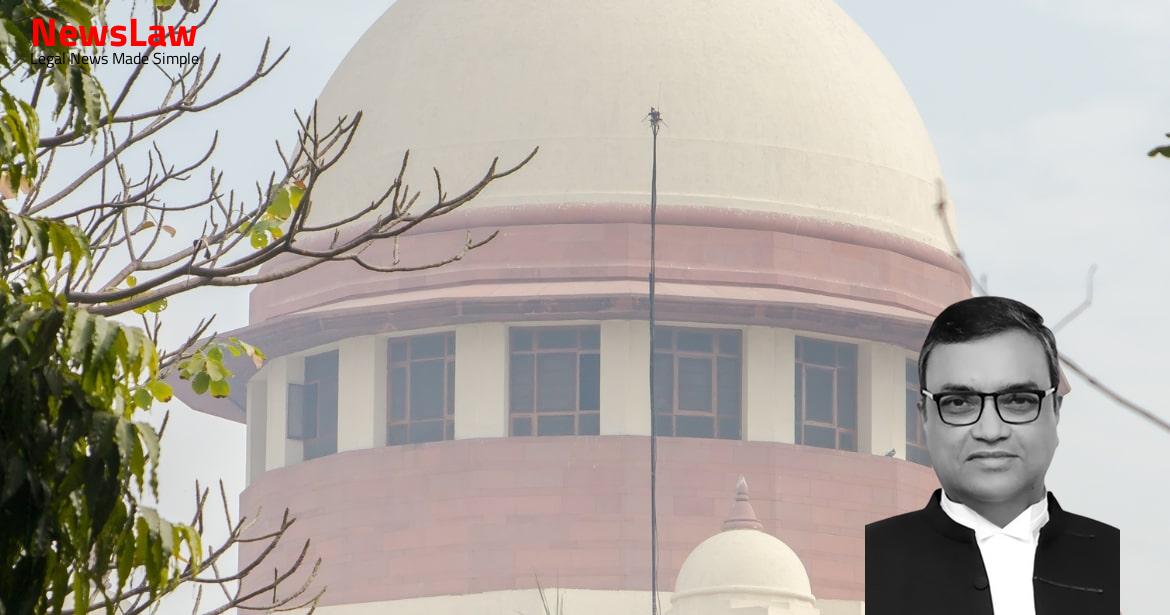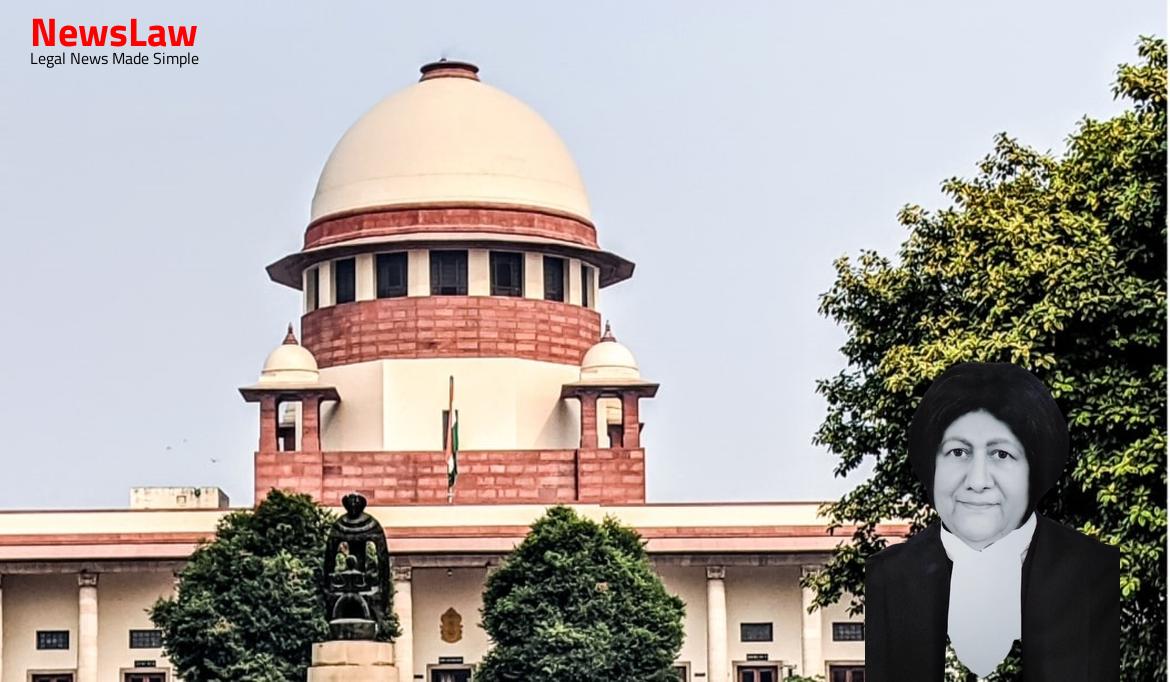The respondent corporation (hereinafter “HSIDC”) called the appellant’s proprietor, Modi Lal Gupta, for an interview on 09-09-1994.
Also Read: https://newslaw.in/supreme-court/legal-analysis-of-claim-for-loss-of-profit-in-delayed-contract/
As a result, HSIDC issued a notice, on 13-12-1996 asking the appellant to show cause why the plot should not be resumed on account of its failure to fulfil the terms and conditions of the allotment. Since appellant did not come forward to satisfy the HSIDC by producing any document in response to its letter dated 19-04-1998 about the steps taken, HSIDC, on 18-09-1998 resumed the plot stating that the appellant was not serious in implementing the project and that the plot was lying vacant.
Relying on the decision of this court in Indu Kakkad v Haryana State Industrial Development Corporation Ltd, where this court relied on a clause similar to clause 6 of the current agreement, the NCDRC held that the HSIDC was justified in resuming the plot. Garg, learned counsel appearing for the appellant, urged that the appellant did not violate any of the terms of the allotment letter and took due steps in terms of the allotment letter. Learned counsel further submitted that the NCDRC’s impugned order is in error, because it overlooked the fact that the resumption order was issued without granting any opportunity to the appellant; furthermore, the order was also vitiated as it was non-speaking. The persistent inaction of the appellant and his inability to show any inclination to fulfil these objectives, despite grant of several opportunities, and most importantly his inability to take any initiative despite lapse of five years from allotment, meant that he was not interested in constructing upon, or using the plot for any industrial activity, but rather to speculate and wait for its value to increase, and thereafter dispose it off. Later the next month on 27-10-1995, an agreement was executed between HSIDC and the appellant in which he agreed to complete the project in 2 years. The agreement also contained the condition that extension could be granted upon payment of a fee. Yet again on 29-04-1998, another show cause notice was issued by HSIDC, asking the appellant to indicate the steps that he had taken to put up the industrial unit and start production. The District Consumer Forum allowed the complaint on 16-05-2000 and directed the HSIDC to withdraw the resumption order.
Clause 4 (iii) of the agreement stipulates that the allottee would enjoy the right of possession as long as he complied with all terms and conditions of allotment contained in the agreement. Provided that the scheme shall be deemed not to have been implemented unless the allottee starts commercial production after completing construction to the extent of at least 25% of the permissible covered area of the plot as per the approved Zoning Plan of the concerned estate within the aforesaid period failing that event, the plot shall liable to be resumed by the Corporation.
However, the Corporation shall have the right to call for periodical reports every 6 months from the allottee about the progress /implementation of the project and if, after hearing the allottee the Corporation is of the opinion that the progress is unsatisfactory it may order the plot to be resumed.
Similarly, any request of the allottee for transfer of plot, could be considered where the final allotment letter had been issued and the project had been completed and approved by the HSIDC. In these circumstances, the conclusion which this court is compelled to draw is that the appellant was always insincere and perhaps never intended to follow up and set up the industrial project, which he proposed to HSIDC, as the basis for allotment of his plot. Since the appellant failed to commence construction within the stipulated time, show-cause notice was issued as to why the plot be not resumed in terms of the agreement; that was in challenge and relied on Section 11 of the Transfer of Property Act, 1882.
The Section provides that “on a transfer of property an interest therein may be created with the condition super-added that it shall cease to exist in case a specified uncertain event shall happen, or in case a specified uncertain event shall not happen.” Illustration (b) to the Section makes the position clear, and it reads: (b) A transfers a farm to B, provided that, if B shall not go to England within three years after the date of the transfer, his interest in the farm shall cease.
The condition that the industrial unit shall be established within a specified period failing which the interest shall cease, is a valid condition.
The idea behind development of industrial plots and allotting them to deserving applicants is to act as a catalyst to promote economic growth; this aspect was underlined in Hari Om in the following manner, while describing the functions of HSIDC: “4. The inference which this court is left to draw, is that the allottee’s intention was perhaps never to set up any industrial unit, despite its promise to the contrary, and speculatively deal with the plot. The appeals are dismissed, but subject to directions contained in the previous paragraph; there shall be no order on costs.
Case Title: AMAN SEMI-CONDUCTORS (PVT.) LTD. Vs. HARYANA STATE INDUST.DEV.CORP.LTD.. (2023 INSC 172)
Case Number: C.A. No.-000572-000573 / 2010



